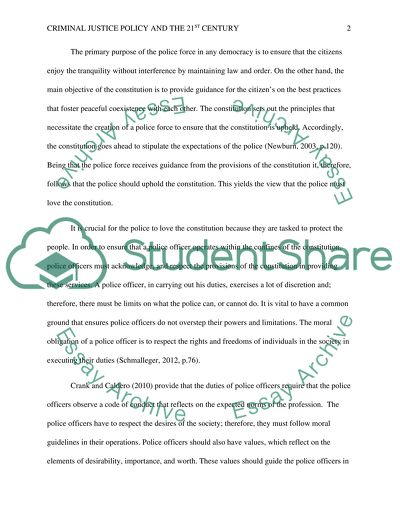Criminal Justice Policy and the 21st Century Research Paper. Retrieved from https://studentshare.org/law/1474631-criminal-justice-policy-and-the
Criminal Justice Policy and the 21st Century Research Paper. https://studentshare.org/law/1474631-criminal-justice-policy-and-the.


